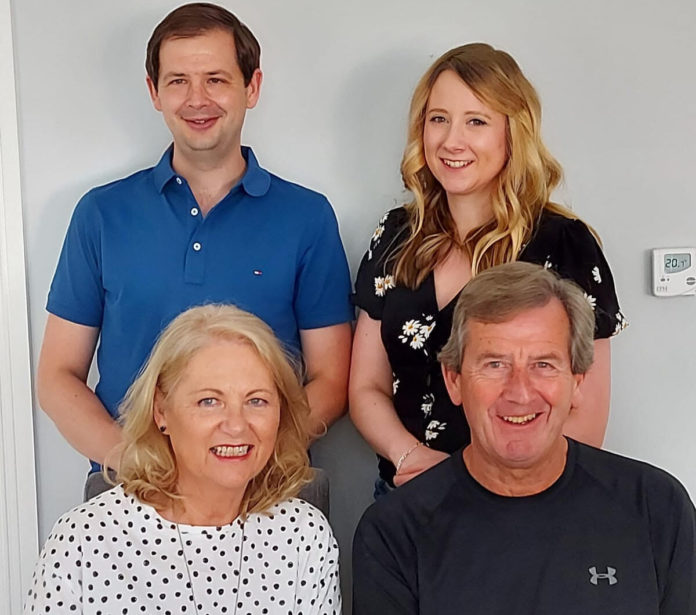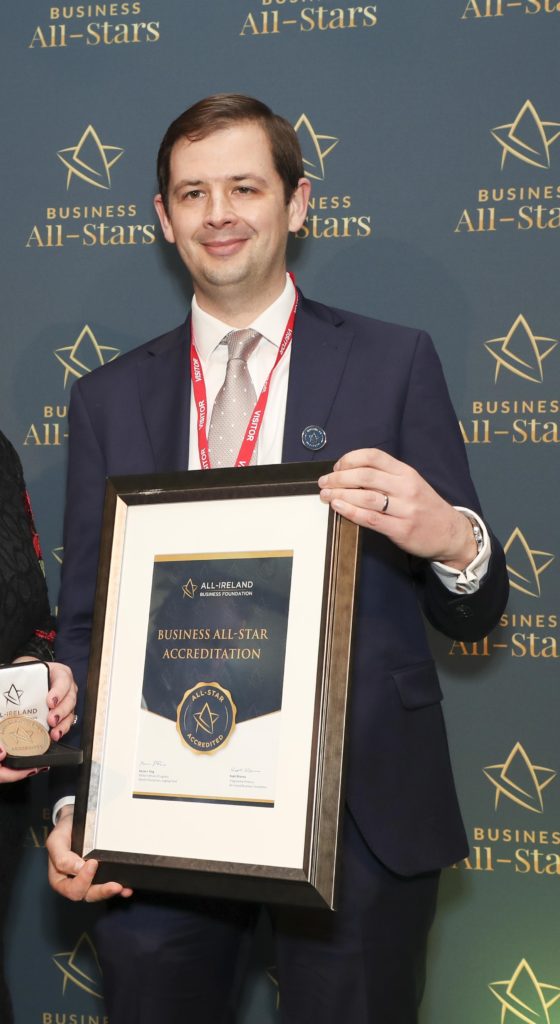
Interview with Kevin Grant, Sales Director, The Green Office, Ireland
An increasing number of people are striving to make their workspaces as energy-efficient and environmentally friendly as they are productive, and it’s The Green Office’s business to help them do so.
The Green Office’s owning family, the Grants, are pioneers in the supply of high-quality, cost-effective and environmentally friendly printer cartridges and office stationery, which they deliver to their customer base across Ireland. Founded in 1993 by Maria and Philip Grant, The Green Office began by collecting and recycling old dot matrix printer ribbons that were destined for landfills, even though 90 per cent of the material being thrown out was reusable.
The success of The Green Office is based on two simple principles: giving customers the option of environmentally friendly office supplies while providing a personal touch that larger corporations simply cannot match. Kevin Grant, who joined his parents in the family business 13 years ago, continues to build on those principles in a world that now works remotely.
These days, the entire Grant family is focussed on sustaining the business through the endless series of lockdowns caused by the COVID-19 pandemic. Encouragingly, they’ve found that the years they spent building close relationships with their customers are paying off in these uncertain times.
We sat down with Kevin Grant to discuss his journey in the family business, encouraging signs of entrepreneurship in the midst of a crisis and what the world might look like when the dust settles.

Was working for the family business a foregone conclusion for you?
I honestly don’t think my parents planned it that way. When my sister and I first got involved in The Green Office and expressed an interest in joining, they made very clear what was involved, what challenges would come up along the way and what it takes to be successful in the family business.
I had worked in other companies before and felt that I could contribute to the success of The Green Office. I could see from an outsider’s perspective where I might be able to use some of my skills to help grow the company.
That was 13 years ago now, and I’ve never regretted the decision to join. I can’t see myself working anywhere else. Here, I am in control of my destiny. I get to see the benefits of my work straight away, and I can make a significant impact quickly, which isn’t always possible in a bigger organisation that has layers of bureaucratic management.
How has it been for you and your family in the face of the COVID-19 pandemic?
When we first realised the severity of the situation, we sat down and made a survival plan for the next six to eight weeks, which I think was very important. Given our size and structure as a family business, we were able to discard our original plans for March, April and May very quickly.
Therefore, we worked very hard on getting our products out to people when we could and got them the sanitation products and cleaning supplies as soon as they were available.
That helped us get slightly ahead, and it gave us some breathing room. We’ve been working off that precedent for almost a year now. As the pandemic continued we were able to take the time to devise a plan to stay in business. That gave some peace of mind to our staff; even if it’s not business as usual, we have been operating.
We recognise this as an opportunity to help our customers when they need us most – and they’re genuinely appreciative of what we’re doing for them. When it’s all over, we will have built up goodwill with our existing customers, which is not something that can be bought or sold.
A lot of the certainty that we had is non-existent now, so we all knew that we needed to take control of our own destiny and manage what’s in front of us as best we could.
Did you see a marked difference between how your parents reacted to this situation and how you and your sister reacted?
We were pretty much on the same page. We looked at how we could get in front of the pandemic and build some certainty into our business. A lot of the certainty that we had is non-existent now, so we all knew that we needed to take control of our own destiny and manage what’s in front of us as best we could.
This event is quite different from the previous economic crisis in that it is not just one sector that is affected. The bottom line for us, however, is that people are still spending money and they still want our products. It’s how we can adapt to meet their needs that will determine whether or not we come out the other side successful. Luckily, we’re getting a huge amount of inquiries for products as more people have begun working remotely.
You have two choices when something like this happens. You can give in to fear, or you can accept the situation and look to find hidden opportunities. We’ve chosen the latter – and, in the long run, it’s something that’s going to help us sustain the business.
The silver lining is that we’re now talking about values that we’ve taken for granted for a long time and spending more time together as a family. Also, from an environmental point of view, the planet is currently getting a welcome break from our pollution. Although the pandemic is an immense challenge, it’s also providing an opportunity to take stock and find better ways to live.
How do you think business models in Ireland will change moving forward?
What the pandemic has shown so far is that entrepreneurs will find a way. People are proving that they can adapt to this challenge and change their business models extremely quickly.
For example, there’s a shoe store near us that was able to continue operating before the shutdown with a limited amount of people coming in and out. They allowed people to take products home to try on and then bring back. As a result, they were able to stay in business a little longer than they would have otherwise.
People should take heed of what this situation can teach them and start adjusting their operations according to how things will likely be after it’s over. We are already seeing that it’s possible to work remotely effectively, and although some people will miss the camaraderie and social aspect of working in an office, I see a more flexible approach emerging where people work one, two, even three days a week from home.
In our industry specifically, we need to look at cleaning, sanitation and personal protective equipment. People will want to be better prepared for something like this should it happen again, and we need to do our part in helping them get ready.
People need to know they are not just an account number at some multinational. For us, it has long been evident that consumers want to buy from people they know and trust.
Do you believe that family business is a viable format for the future?
I am 100 per cent confident that it is. The pandemic has demonstrated how important human connections are; we’re all making a huge effort to connect remotely now. People need to know they are not just an account number at some multinational. For us, it has long been evident that consumers want to buy from people they know and trust.
Ireland has a relatively small economy, so there are probably only three to four degrees of separation between you and anybody that you are potentially doing business with. Our reputation is very important, as is how our customers think of us. That’s why we reached out to our customers early on to reassure them that we’re still operating – and doing so safely.
As business operations become more automated and remote, people will still want to have the reassurance of a family business on the other side – a real person to provide advice if needed. The more automated the world becomes, the more people appreciate a personal touch, such as handwritten thank you notes for an order.
Simply put, family businesses are much better at personal touches than their non-family peers. No matter how much the bigger companies may try to replicate us, it doesn’t come off well if it’s not done with your customers’ welfare at heart.









